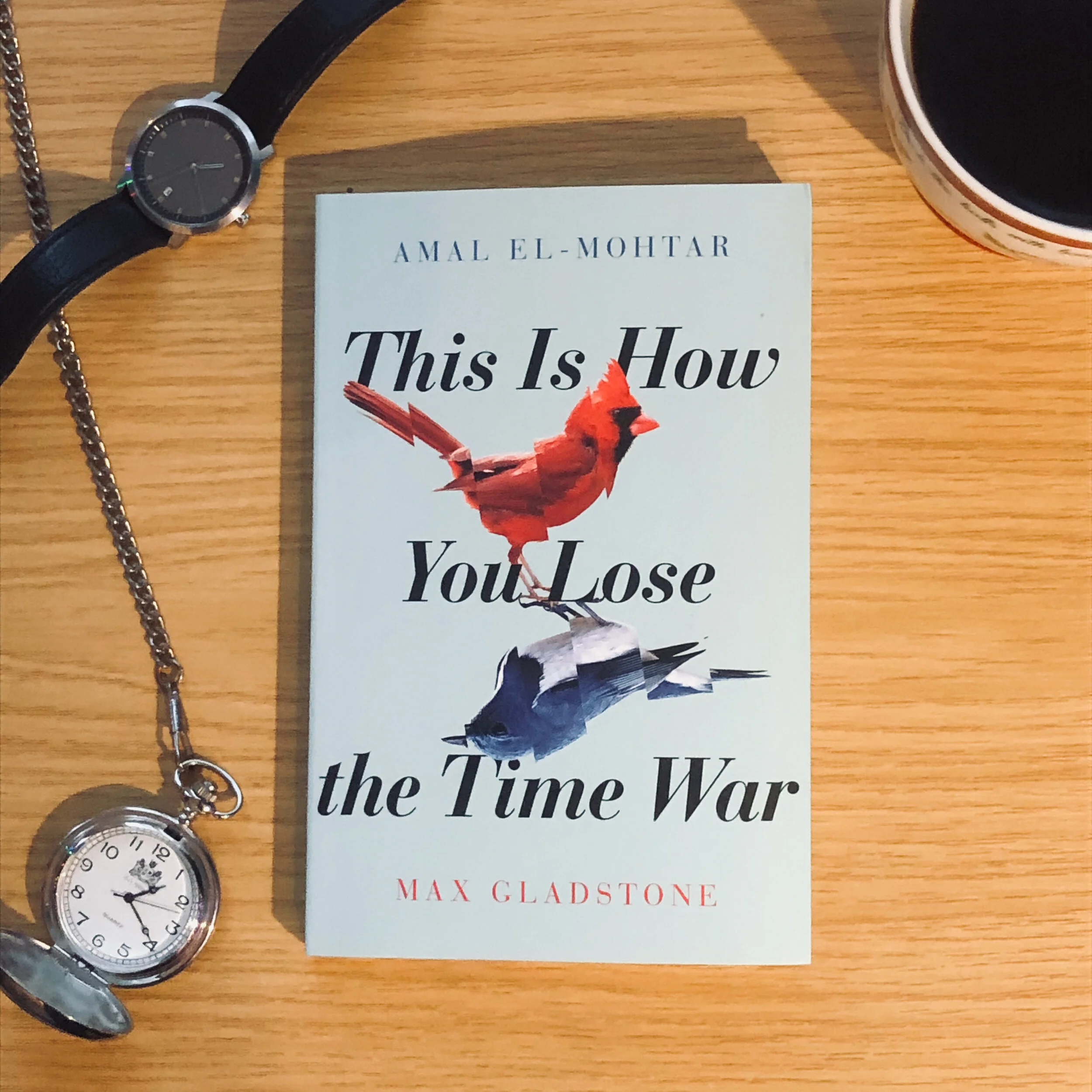“This Is How You Lose The Time War”
by El-Mohtar & Gladstone
Among the ashes of a dying world, an agent of the Commandant finds a letter. It reads: Burn before reading. Thus begins an unlikely correspondence between two rival agents hellbent on securing the best possible future for their warring factions. Now, what began as a taunt, a battlefield boast, grows into something more. Something epic. Something romantic. Something that could change the past and the future.
I was excited to start This Is How You Lose The Time War. I like stories that are told in interesting ways, and this promised something like that. I didn’t quite know what to expect and having finished it, I’m left with the weird feeling I shouldn’t have liked it, but I really did.
The main success from authors Amal El-Mohtar and Max Gladstone is how well they create a world that is infinitely beyond our own yet remains wonderfully familiar. They tell a story that spanned multi-universe history, filled with time-travel, unearthly weapons, and a conflict spanning space and time, building a sense of what is happening without needed explanation.
This works because these things are not what the story is about. Our dualling protagonists, Red and Blue, are universal figures. We don’t need to know the details of how, where, or why they fight. The idea of two people locked in eternal conflict realising they have more of a connection they could ever have predicted is simple, yet powerful.
It’s the language that sold the book to me. But it was also the language that was always perilously close to making me hate it. It has that poetic style that so many people think they can achieve, but so few can. The kind of writing where you know the authors strived their utmost to never use the same word twice. The fact they succeeded in making this readable is even more impressive considering that it is presented as letters that grow more and more loving and affectionate.
Imagine the sort of insufferable love letter written by a teenager who’s just discovered poetry and believes their words are clever, profound, and insightful. These are the letters they think they are writing.
Both the story and prose veer dangerously close to unbearable towards the end. There was a point where I was afraid the story was going to crash and burn into a cliched retelling of Romeo and Juliet, but El-Mohtar and Gladstone manage to swerve aside from that danger and brought us to a much more satisfying ending.
I can’t say This Is How You Lose The Time War has the greatest plot in the world, but it's simple, powerful, and keeps the reader engaged, with an ending with enough twists to keep us guessing. Yes, the writing comes dangerously close to teenaged angst at about the two-thirds mark, but that's a small blip in an otherwise wonderful read.
